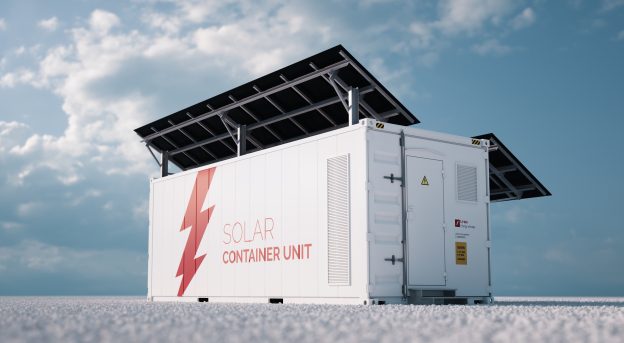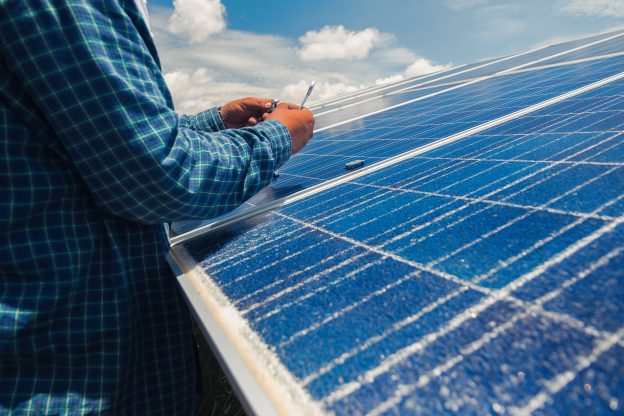Traditional oil and gas companies are becoming more proactive in investing in the new energy sector as to expand their business portfolios. Shell Technology Ventures LLC (STV), the capital venture subsidiary of Royal Dutch Shell PLC (Shell), announced in January 2018 that it raised US$20 million in equity investment for Husk Power Systems Pvt. Ltd. (HPS), an Indian startup that develops biomass electricity generation and mini-grid distribution.
This latest round of fundraising was led by STV, which has been focusing on investing in advanced energy technologies, and was joined by Swedfund International AB and ENGIE Rassembleurs d’Energies. Controlled by Sweden’s Ministry of Enterprise and Innovation, Swedfund provides seed money for foreign startups that offer solutions to combat poverty. Similarly, French energy multinational ENGIE SA established ENGIE Rassembleurs d’Energies as a social investment fund to promote sustainable energy access worldwide.
The amount that was raised by STV-led funding round in January was comparable to the largest cash injection given to a mini-grid developer on record. US-based mini-grid developer Powerhive Inc. was first to reach around U$20 million in its Series A funding round in 2016. The participants of Powerhive’s fundraising included Caterpillar Venture Capital Inc. (Caterpillar Ventures), Total Energy Ventures International SAS (TEV), and Tao Capital Partners LLC.
Established in 2008, HPS specializes in providing off-grid power generation and distribution for the vast rural areas of the developing countries. HPS first served the communities in Bihar, a populous Indian state where 80% of its 900 million inhabitants do not have reliable access to electricity supply. Within the first five years of its operation, HPS managed to provide power to 10,000 customers. Shell has been the backer of HPS since the creation of the startup and provided the seed capital through its charity the Shell Foundation. Shell in particular has been highly interested in HPS’s biomass gasification technology, which also attracted investments from the venture capital firm Draper Fisher Jurvetson and the technology conglomerate Cisco Systems Inc. in 2009. HPS has been widely recognized for its green and affordable energy solution and was the winner of the Ashden Awards for 2011.
With India and Tanzania as its target markets, HPS aims to establish 300 mini-grids over the next four years. Together, these 300 mini-grids will provide 15 megawatts of renewable generation for 100,000 customers in the two countries and potentially reduce diesel consumption by 56 million liters per year.
HPS, as its name would suggest, initially developed a biomass gasifier that uses a high-temperature process to convert rice husks into fuel gas. The fuel gas can then be used by gas-fired generator to produce electricity. From 2015 onward, HPS has also embraced solar photovoltaic and battery technologies that have become more cost effective. By incorporating these two technologies into the development of its biomass generation system, HPS has further created a hybrid, independently powered mini-grid. The latest generation system from HPS can supply electricity to rural communities all day and charge users under the pay-as-you-go model. While the solution from HPS has yet reach grid parity, it generally costs about 30% less than traditional diesel generators, which have been the main electricity producing technology of off-grid rural communities.
Manoj Sinha, CEO and co-founder of HPS, said in a related press release that his company’s goal is to become “the world’s largest rural utility company” capable of supplying renewable and affordable power to their customers 24/7. Sinha is very confident that his company will soon achieve this objective. He also firmly believes that mini-grid is the ultimate cost-effective solution for developing countries to attain “100% national electrification”.
Brian Davis, the vice president of Shell New Energies (a business division under Shell), pointed out the strategic value of HPS in a press statement. According to Davis, the latest fundraising for HPS was “an important step for [Shell’s] energy access portfolio”, and the Indian startup is anticipated to be a leader in providing reliable and affordable electricity supply to off-grid or weak-grid areas in India and Africa.
Presently, the development of mini-grids is concentrated in India and countries in Sub-Saharan Africa, where grid infrastructure is lacking. Even though technologies involved in mini-grid deployment have become more mature, they rarely attract large-scale investments. Because mini-grids are located in remote, rural communities, investors are skeptical of their long-term profitability. Developing viable business models for mini-grids has also been very challenging. Nevertheless, the latest fundraising for HPS indicates that the interest in mini-grids is rising; and there is sufficient market demand to warrant the attention of traditional oil and gas companies. In the future, investments in this area is expected to grow at an accelerated pace.
There were some noteworthy investment deals related to off-grid power generation in the recent years. Japan’s Mitsui & Co. Ltd. contributed US$9.3 billion to form a joint venture with India’s OMC Power Pvt. Ltd. in September 2017. This joint venture is going to expand mini-grid deployment in Africa. Likewise, the startup incubator unit of the major European utility company E.ON SE created Rafiki Power in 2013 to develop off-grid solutions for underdeveloped regions. ENGIE has also its own mini-grid startup PowerCorner working in Tanzania.
With respect to the US, the investment firm Allotrope Partners together with technology giants Facebook Inc. and Microsoft Corp. established a financing platform called Microgrid Investment Accelerator (MIA) in April 2017. MIA’s goal is to inject US$50 million into the building and promotion of off-grid, localized generation projects between 2018 and 2020.







